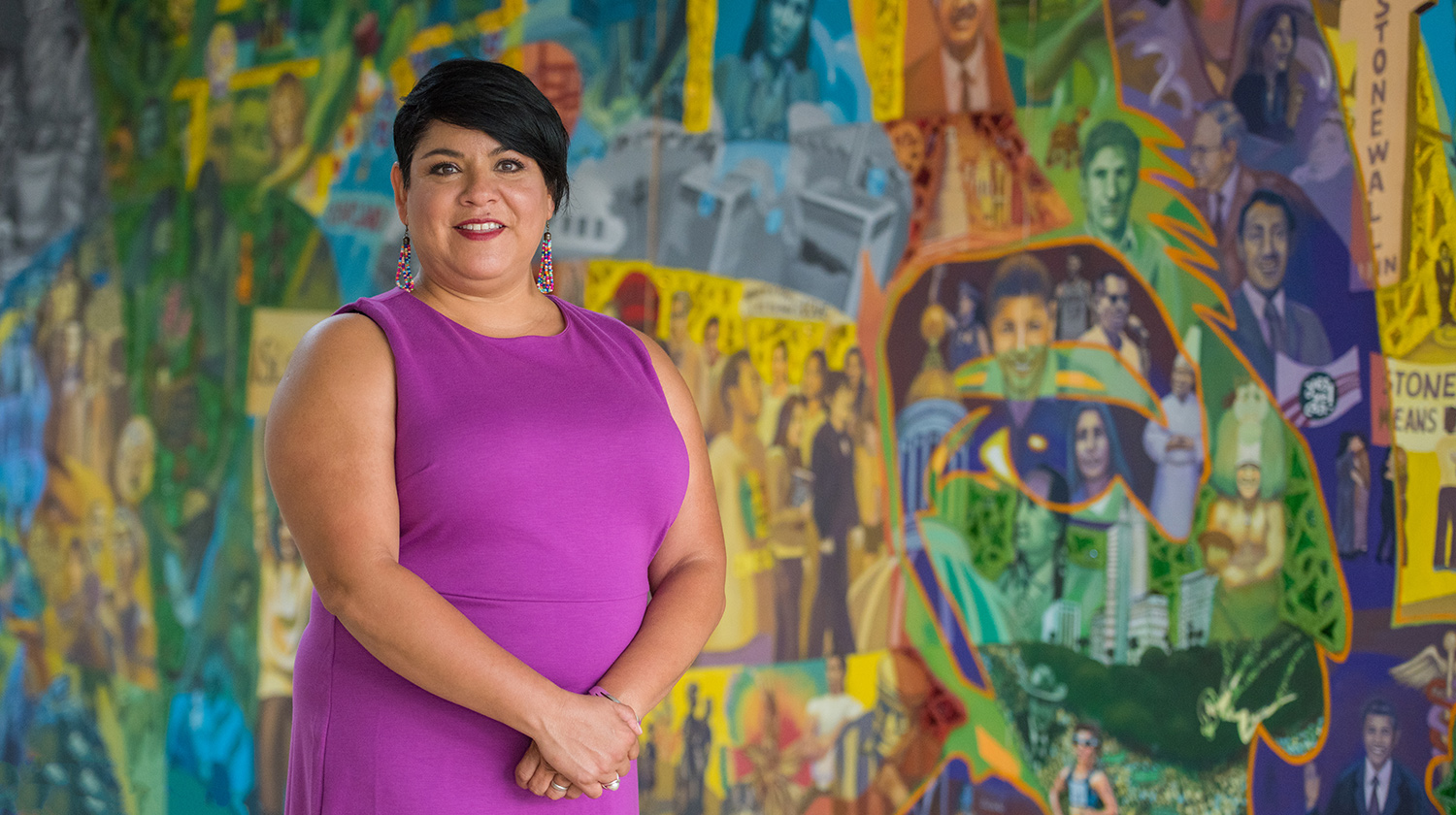
Corina Benavides-Lopez considers the principles of social justice – access, equity, rights, and participation – to be the most enduring values in her life.
The assistant professor of Chicana and Chicano Studies at California State University, Dominguez Hills (CSUDH) also believes that social justice is at its weakest when narrowly applied, which is why Benavides-Lopez teaches its tenets as accessible for everyone.
“I don’t feel that I have the right to choose what, or whom, is most important when it comes to addressing the critical issues around social justice in my research, or in the classroom,” she said.
CSUDH has presented Benavides-Lopez with the 2019 Lyle E. Gibson Dominguez Hills Distinguished Teacher Award. The honor recognizes faculty who manifest in their teaching an understanding of broad areas of knowledge, and whose teaching is not only exemplary and demonstrates an active interest in student progress, but also seeks new and creative ways to engage them.
“It was so touching! I was a little shocked when I received the award. I put so much hard work into my teaching, but I know that there are a lot of faculty who work just as hard as I do,” said Benavides-Lopez. “This is what I enjoy, and that makes me want to work even harder.”
Benavides-Lopez earned her bachelor’s degree in Chicana/o Studies and Women’s Studies with a focus in Education from UCLA, and a master’s degree in Education at Stanford University with an emphasis in Gender Studies and Higher Education. She then returned to UCLA to get her Ph.D. in Education with a specialization in Race and Ethnic Studies.
At CSUDH, Benavides-Lopez’s scholarly and teaching interests focus on Latinx education and immigration; critical race theory; feminism, gender, and sexuality; ethnic relations; and coalition-building. A critical race theorist, she is informed by and researches emancipatory perspectives, and transformation contrary to what some might call the educational mainstream norms when working with students and colleagues.
Benavides-Lopez’s research has been published in scholarly journals such as the Radical History Review, Contemporary Justice Review, and Social Justice Review. She has presented her research nationally at the National Association of Chicana and Chicano Studies, the Critical Race Studies in Education (CRSE) national organization, and the Mujeres Activas en Letras y Cambio Social.
In Their Shoes
Benavides-Lopez’s research and teaching – at its core – is guided by her personal experiences as an undocumented youth, English language learner, first-generation college student, and a woman.
“It’s important for me to be able to work from a place that honors those kinds of struggles,” she said. “Working at Cal State Dominguez Hills has helped reinforce my affinity for educational equality. This is my passion, and what informs my teaching, my social justice work, and my scholarly research.”
Recently, Benavides-Lopez’s work has examined how Ethnic Studies faculty and scholars promote emotional and educational healing in the face of oppression.
“We are creating learning spaces for students that honor diverse perspectives and diverse ways of learning in order to have those difficult conversations, so we can transform this into the world that we want to see,” she explained.
Benavides-Lopez has been active in the McNair Scholars Program, serving as a student adviser, and for the new Mellon Mays Undergraduate Fellowship Program, which is designed to help increase diversity in humanities faculty in institutions of higher learning.
“I intentionally put myself out there for students who are curious about research, as well as those and who may see themselves as university professors someday,” said Benavides-Lopez, who has taken students with her to conferences to present their research. “When students are grappling with a particular question and decide they want to do research on it, I’ll serve as an adviser, and sometimes I also collaborate with them on their projects.”
Benavides-Lopez is also an advocate for CSUDH’s undocumented students. She serves on the CSUDH Undocumented Student Ally Coalition, and collaborates with the Division of Student Affairs on the Día de los Muertos program.
“Collaborating with others on campus as a student ally has been very enriching and fulfilling,” said Benavides-Lopez, who was also active in the development of the Toro Dreamers Success Center. “This university offers faculty so many unique opportunities to help students succeed.”